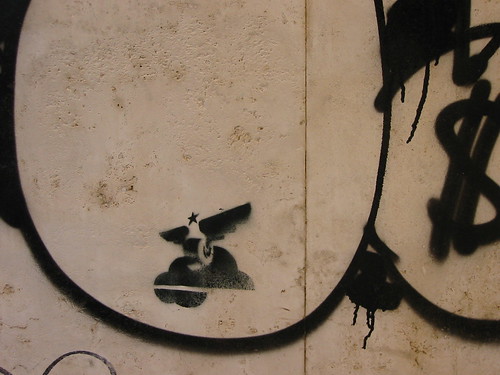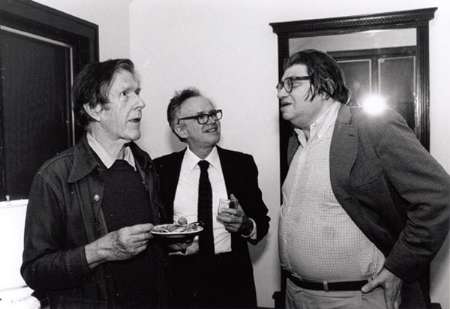
Black Dollar
Pedal’d through the skimpy driving rain to perform my citizenry, big turnout early in the neighborhood. And continued here with barest currency coined. Finish’d the Rexroth, rather crabbily. Note to myself: Randolph Bourne’s Untimely Papers
and The History of a Literary Radical. Note, too, the Hayakunishu anthology. Note (elsewhere, “scratchpad”) Hebe, the goddess of youth. “Her mother conceived her in a pleasant manner, without any acquaintance with a Male, for she
was invited to a sumptuous Feast by Neptune in Jupiter’s Palace, and there she met with a dainty Sallad of Lettice that moved her imagination, and caused her to conceive this Hebe.” (Apparently not related to hebetudinosity: blunt, dull, jowly.)
Later, in Guy Mannering, Sir Walter Scott’s got a Hebe delivering up a plate of “beef collops.” (The way one gets lost in words is rad, no?) “If there is one thing more hateful than another it is being told what to admire and having
objects pointed out to one with a stick,” is what the curate Francis Kilvert (of posthumous fame) reputedly jotted. One of Ronald Johnson’s readings, amongst others. Iain Sinclair (how come nobody in North America reads Iain Sinclair?) calls
Kilvert’s Diary a “great arc of material in a pre-literary state, not yet cooked & synthesised as poetry: delight, despair, social drama, landscape, weather. A meditative walker & hill wanderer who invented the autobiography that his words
(moving out on a generous curve) would require.” As opposed to David Jones: “I hate being out of doors.” (One—my shabby shoes steaming under the desk, drying almost vociferously—often rather thinks too few Bloglanders plod out into the physical
world, out where the Eastern pipistrelle flits and jerks . . . Pipistrelle a word reminding me invariably of Lorine Niedecker, though her word is pipsissawa, that tiny winter berry . . .) Bats. Morton Feldman: “Philip
Guston once told me that when he sees how a painting is made he becomes bored with it. The preoccupation with making something, with systems and construction, seems to be a characteristic of music today. It has become, in many cases, the
actual subject of musical composition.” The instinctual. Oddly, Feldman credits John Cage with a Duncanian “first permission” moment, showing Cage a string quartet and Cage asking “How did you make it?” Feldman: “. . . just a week before, after showing
a composition of mine to Milton Babbitt and answering his questions as intelligently as I could, he said to me, “Morton, I don’t understand a word you’re saying.” And so, in a very weak voice, I answered John, “I don’t know how I made it.” The
response to this was startling. John jumped up and down and, with a kind of high monkey squeal, screeched, “Isn’t that marvelous. Isn’t that wonderful. It’s so beautiful, and he doesn’t know how he made it.”

John Cage, Lejaren Hiller, and Morton Feldman
(Photograph by Irene Haupt)
(Photograph by Irene Haupt)